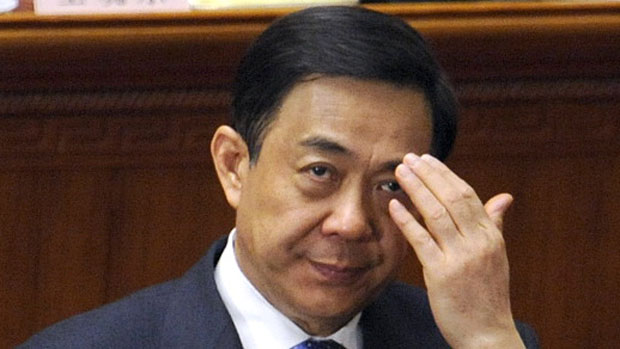Comeuppance Chinese-style: not a good year for snakes
Review of the Chinese year, Part 3: how the rich and powerful got a taste of their own medicine

A free daily email with the biggest news stories of the day – and the best features from TheWeek.com
You are now subscribed
Your newsletter sign-up was successful
SHANGHAI – As China’s income disparity grows at a venemous pace, those with a sense of entitlement appear just as capable of avarice, arrogance and indifference to the suffering of others as their counterparts in the West.
The most high-profile among the rich and powerful to make the headlines in the Year of the Snake were Bo Xilai, the populist politician, and Li Tianyi, the 17-year-old son of two household-name singers from the People’s Liberation Army.
Controversial, larger-than-life Bo was obviously going down. Though once considered untouchable as a “princeling” son of a Communist Party elder, his high-handed policies, the suspended death sentence handed to his wife in 2012 for the murder of British businessman Neil Heywood, and the notorious Wang Lijun incident, in which Bo’s top lieutenant sought asylum in a United States consulate, were too much to bear. Bo was found guilty of corruption and sentenced to life imprisonment in September.
The Week
Escape your echo chamber. Get the facts behind the news, plus analysis from multiple perspectives.

Sign up for The Week's Free Newsletters
From our morning news briefing to a weekly Good News Newsletter, get the best of The Week delivered directly to your inbox.
From our morning news briefing to a weekly Good News Newsletter, get the best of The Week delivered directly to your inbox.
Young Li’s case was less clear-cut, and many members of the jaundiced public half-expected him to be acquitted for taking part in the gang rape of a woman in the capital Beijing. Yet Li was sent down for 10 years, despite his powerful parents’ connections and machinations.
Such noteworthy cases aside, the Year of the Snake was remarkable for widespread outrage in the media at even petty injustices. What’s more, perhaps fearing the masses’ bubbling resentment, the privileged were even willing to throw a few of their own to the laobaixing - literally, “the old hundred names”, but essentially “the “common people” - for minor infringements of conduct or morality.
In August, for example, on a particularly scorching day in Henan province, two Chinese officials felt the chilly hand of shared discontent when, having knocked down a woman with their government car, they refused to offer assistance. A mob soon surrounded the blood-spattered vehicle in which the pair remained, laughing and chatting. “They were afraid of the heat,” a witness told the Dahe Daily.
Eventually, after a half-hour stand-off, one of the smartly dressed bigwigs deemed to step out of his air-conditioned hideaway. Did he rush to the aid of the injured pedestrian? Nope. He turned on his heels and fled. (The pair – from the local Justice Bureau, of all things – were disciplined.)
A free daily email with the biggest news stories of the day – and the best features from TheWeek.com
In September, the Shanghai Daily reported the case of a Hebei province official who was caught on video nonchalantly scoffing lobster, puffing on premium-brand cigarettes and knocking back expensive rice wine at a banquet costing “tens of thousands of Yuan” (thousand of pounds sterling) while he poured scorn on the laobaixing for their “disgusting and shameful manners”. (Fired!)
In November, the Beijing News told of Hunan province officials who had attempted to force away a petitioner – a cane-carrying citizen suffering from cancer – from a provincial government building. When the man’s wife had threatened to take photos, the officials posed cheerily for her camera alongside the frail and terrified petitioner, flashing V for victory signs and grinning. (Current employment status unknown.)
Also in November, the state-run Xinhua news agency distributed a photograph – lifted from China’s Twitter-like Sina Weibo – of an official taking a ride on a lowly villager’s back (a misguided move that he might have saved for the coming Year of the Horse) because he didn't want to ruin his “high-end” shoes while visiting flood victims in Zhejiang province. (Sacked!)
Despite the authorities’ apparent crackdown on officials who get above their station, it should be noted that taking justice into one’s own hands is still a perilous game for China’s long-suffering laobaixing.
Take the case of anti-corruption activist Xu Zhiyong, founder of the grass-roots New Citizen Movement which promotes the limiting of unbridled official power. Earlier this week, Xu was convicted of “gathering crowds to disrupt public order”. He did not have a government position - and therefore could not be fired. Instead, he was sentenced to four years.
This article concludes Gary Jones’s three-part review of the Chinese Year of the Snake. Read Part One and Part Two here.